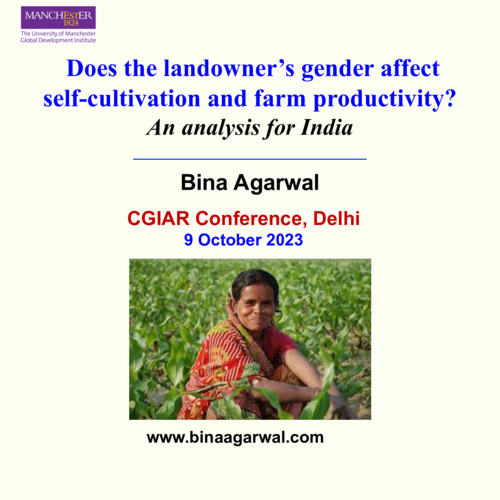Does the landowner’s gender affect self-cultivation and farm productivity? An analysis for India
Abstract
Land ownership has long been argued to enhance farm productivity by improving tenure security. But does this hold for both female and male owners? Few studies have empirically examined the relationship between gender, landownership, and productivity globally, and even fewer have done so for Asia. Gender differences in the likelihood of landowners self-cultivating as opposed to leasing out their land are even less explored. This paper uses a unique household-level dataset for nine states of India to first assess gender differences in the likelihood of landowners self-cultivating, and then analyse differences in farm productivity between female and male owners who self-cultivate. The effect of caste disadvantage is also explored, as is the veracity of existing assumptions about intrahousehold farm decision-making. The study finds that women owners are significantly less likely than male owners to self-cultivate their land, especially due to family labor constraints. However, among those who do selfcultivate, the annual farm productivity per hectare does not differ significantly by the gender of the ownercultivator, with or without controlling for other factors. Caste matters, however: Scheduled Caste ownercultivators of both genders have significantly lower productivity than upper-caste ones. The presentation will also explore if group approaches to accessing and cultivating land can help women overcome their individual-level resource and social constraints, to enhance farm productivity and food security.

